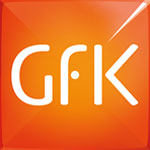Optimism about the economy continues to grow in America

Americans today are twice as likely as in December to say the economy is "good" (30% versus 15%, respectively) and are increasingly likely to say their own household financial situation is "good" (63%, up 3%age points since December of last year). More Americans say the economy improved in the past month (28%) than in December (20%). In addition, importantly, Americans are increasingly likely to see an economic recovery on the horizon, with about four in ten (43%) agreeing the economy will improve in the next year, up from 37% last December.
In another encouraging development, more expect unemployment to decrease over the next year (34%, up from 24% in December). In addition, compared to a year ago, fewer say they know someone who has lost their job in the past six months due to economic conditions (54% compared to 65% in January, 2011).
Still, the economy remains a top concern of Americans, with nine in ten saying the issue is "extremely" or "very important" to them, a number virtually unchanged over the past two years. Unemployment, as well, remains a top concern with 82% saying it is extremely or very important to them, a number that has remained fairly consistent over the past two years.
Lower-income Americans share less in the optimism
Much of the optimism about economic recovery is not shared by lower-income Americans, classed as those reporting annual household incomes of less than US$50 000. Indeed, compared to households reporting higher incomes, some of the differences are striking. Nearly half of lower-income Americans describe their own household financial situation as "poor", compared to just 17% of other Americans.
Moreover, only 21% with lower income agree the economy improved over the past month, compared to 38% of Americans reporting at least US$50 000 in annual household incomes. In addition, while only four in ten believe the economy will improve in the next year, nearly half with higher incomes report such optimism. Lower income Americans are also less optimistic that unemployment will ease in the next 12 months - only 26% versus 43% of other Americans. In addition, they remain more concerned about unemployment, with 85% saying it is an "extremely" or "very important" issue to them, compared to 78% of higher-income Americans.
"Americans have seen the recent good economic news, particularly as it pertains to the decline in unemployment, and it has improved their outlook about the future," said Debra A. Pruent, chief operating officer of GfK with responsibility for the Consumer Experiences sector, which conducted the poll in partnership with the Associated Press.
"At the same time, many lower-income Americans - many of whom were hit hardest by this recession - are less quick to share in the optimism, and are perhaps taking a more 'wait and see' attitude toward the increasingly optimistic forecasts."
How the poll was conducted
The Associated Press-GfK Poll was conducted 16-20 February 2012 by GfK. This telephone poll is based on a nationally-representative probability sample of 1000 general population adults age 18 or older. Interviews were conducted with 700 respondents on landlines and 300 respondents on cellular telephones. The sample included the contiguous 48 states, Alaska, and Hawaii. Interviews were conducted in both English and Spanish, depending on respondent preference. The margin of sampling error is plus or minus 4.1 percentage points at the 95% confidence level, for results based on the entire sample of adults. The margin of sampling error is higher and varies for results based on sub-samples.
About Associated Press (AP)
Associated Press (AP) is a leading global news network, which delivers fast and impartial news from all over the world to every media platform and media format. AP was established in 1846 and is today one of the major and most reliable sources of independent news and reporting. Every day, more than half the world population comes into contact with news supplied by AP.
Source: GfK

The GfK Association was established in 1934 as a non-profit organization for the promotion of market research. Its membership consists of approximately 600 companies and individuals. The purpose of the Association is to develop innovative research methods in close cooperation with academic institutions, to promote the training and further education of market researchers, to observe the structures and developments in society, the economy and politics that play a key role in private consumption, and to research their effects on consumers. Survey results are made available to the membership. The GfK Association is a shareholder in GfK SE.
Go to: http://www.gfk.com





